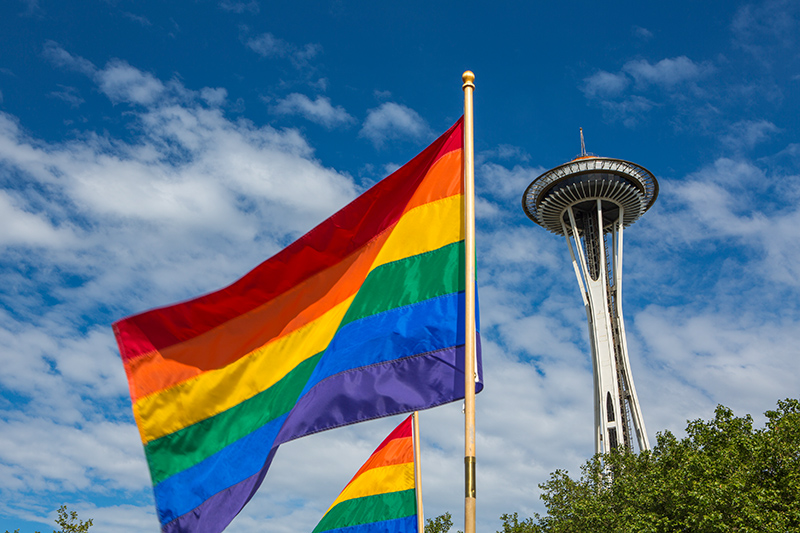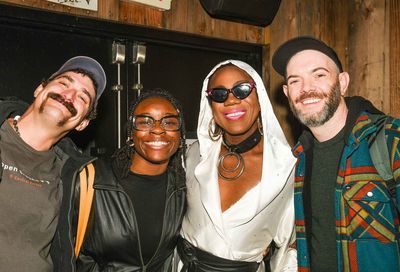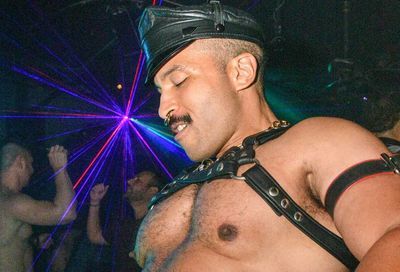California lawmakers pass bill to decriminalize loitering and bar police from using it as evidence of sex work
Advocates say anti-loitering laws encourage profiling that disproportionately targets transgender individuals and people of color.

Last week, California lawmakers voted to repeal a provision in state law that criminalizes “loitering with the intent to engage in prostitution” and would, if signed into law by Gov. Gavin Newsom (D), prevent police from attempting to use loitering as evidence of a person’s intent to engage in sex work.
Senate Bill 357, introduced by Sen. Scott Wiener (D-San Francisco), passed the State Assembly on a 41-26 vote, and the Senate by a vote of 26-9. Republicans and some moderate Democrats balked at the bill, claiming that eliminating penalties on sex workers would hamper law enforcement from cracking down on human trafficking or protecting victims from abuse, according to the Sacramento Bee.
But proponents of the bill, including the American Civil Liberties Union, Equality California, and the Coalition to Abolish Slavery and Trafficking say that the bill does not decriminalize soliciting or engaging in sex work. Rather, they say, it prevents police from racially profiling and mistreating people for simply “appearing” to be a sex worker — assumptions that have a negative impact on transgender women — particularly trans women of color — and Black and brown women, who are among the groups most likely to be targeted by police.
For example, Wiener told the Bee, under current law, police can use behavioral cues, such as whether a person is speaking with other pedestrians, wearing revealing clothing, wearing high heels, or even moving in a certain way as “evidence” to justify charging that person with attempting to engage in sex work.
“Arresting people because they ‘look like’ sex workers is discriminatory and wrong, and it endangers sex workers and trans people of color,” he said in a statement. “Anti-LGTBQ and racist loitering laws need to go. Sex workers, LGBTQ people, and people of color deserve to be safe on our streets.”
According to ACLU California Action, one of the groups supporting the legislation, Black adults made up more than 56% of arrests for loitering with intent to engage in prostitution, while women comprised 67% of those arrested — and potentially more, as local law enforcement may have incorrectly identified transgender women as males once arrested.
Advocates supporting the bill noted that criminalizing loitering also potentially puts LGBTQ Black and Brown communities at risk of police violence, as transgender people who have engaged in street-based sex work are more than twice as likely to report physical assault by police officers and four times as likely to report sexual assault by police. Studies have also shown that black people are more than three times more likely to be shot by police than a white person.
Advocates have also countered that once a person is charged with a misdemeanor under the loitering statute, their criminal record can negatively impact their ability to gain or keep employment or be approved for housing, which in turn forces them into the underground economy — the exact opposite of what bill opponents purport to want.
“For too long, our communities have been harmed by tough-on-crime laws which are used to target and harass our community members, threatening our ability to exist safely in public spaces,” the DecrimSexWorkCA coalition wrote in a statement. “By passing SB 357, the Legislature recognizes the decades of harm that California’s loitering law has had on tens of thousands of people, especially Black and brown women, trans women of color and sex workers, giving us a path to clear our records.”
Related: News outlets misgendered 2 out of every 3 transgender murder victims in 2020
Similar legislation, which repealed loitering provisions believed to exacerbate profiling, was signed into law in New York earlier this year.
Wiener is temporarily holding the approved legislation at the Senate desk, with plans to send the bill to Gov. Gavin Newsom (D) sometime in January. Catie Stewart, a spokeswoman for Wiener’s office, said that holding off on the bill’s passage will allow advocates to better make the case about why repealing the loitering provision is both good public policy and a way to combat discrimination against vulnerable communities.
But the bill is not without its detractors.
Stephany Powell, a former sergeant with the Los Angeles Police Department and the director of law enforcement training and survivor services for the National Center on Sexual Exploitation, claimed in an interview with the Sacramento Bee that the bill “severely cripples law enforcement’s ability to arrest and prosecute human traffickers and sex buyers.”
She also said it’s unfair to say prostitutes from marginalized backgrounds would choose to engage in sex work, arguing that lawmakers should help women find educational opportunities and more stable employment, rather than decriminalizing prostitution-related charges.
But supporters argue that criminal penalties for sex work — including loitering laws — only serve to intimidate victims from coming forward, lest they be arrested or thrown in prison.
“Arresting sex workers doesn’t make them safer, doesn’t make our communities safer, and doesn’t prevent sex work. In fact, when law enforcement arrests people who ‘look like’ they might be sex workers, simply because of how they look or dress, it makes it harder to find and help those who are being trafficked,” Wiener said in a statement. “Giving people criminal records for just standing around is wrong, and we need to reverse this law.”
See also:
BHT Foundation doles out more than $35,000 in grants to local LGBTQ and HIV nonprofits
Support Metro Weekly’s Journalism
These are challenging times for news organizations. And yet it’s crucial we stay active and provide vital resources and information to both our local readers and the world. So won’t you please take a moment and consider supporting Metro Weekly with a membership? For as little as $5 a month, you can help ensure Metro Weekly magazine and MetroWeekly.com remain free, viable resources as we provide the best, most diverse, culturally-resonant LGBTQ coverage in both the D.C. region and around the world. Memberships come with exclusive perks and discounts, your own personal digital delivery of each week’s magazine (and an archive), access to our Member's Lounge when it launches this fall, and exclusive members-only items like Metro Weekly Membership Mugs and Tote Bags! Check out all our membership levels here and please join us today!




























You must be logged in to post a comment.